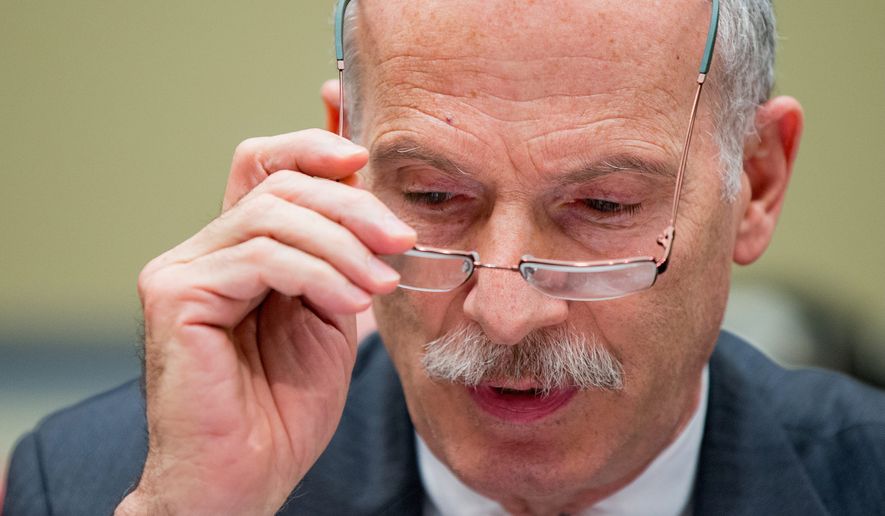OPINION:
This week, the D.C. Council unanimously passed a new criminal code that could create chaos for the courts and disarm judges and juries with sentencing power to be tough on crime.
The bill stems from legitimate concerns raised by the D.C. Criminal Reform Commission last year about outdated statutory “elements,” which are the specific components or ingredients of a law. If a prosecutor charges someone with a crime, they have the burden to prove beyond a reasonable doubt the defendant committed each and every element; otherwise, the judge or jury cannot return a verdict of guilty.
In October 2021, the D.C. Criminal Code Reform Commission sent a letter to D.C. Council Chairman Phil Mendelson complaining that many of the District’s criminal statutes still contained language codified by Congress in 1901 and were outdated.
“Comprehensive reform of the District’s current substantive criminal statutes — the laws that establish the scope of criminal conduct and authorize penalties — is long overdue. … Many existing statutes use outdated and unclear language, fail to state the all the elements that establish liability, or use inconsistent definitions and terminology.”
The letter continues by accurately pointing out that “the structure and drafting of the District’s current substantive criminal statutes stand in sharp contrast to that of most other U.S. jurisdictions,” adding that many cities and states throughout the nation revised their statutory language after the American Law Institute devised the Model Penal Code (MPC) in 1962. One of the more significant changes of the MPC was that it clarified the mental state or “mens rea” needed to prove guilt and “emphasized a clear, complete and consistent statement of all elements instead of a reliance on common law rulings,” the letter says.
We agree that this is a valid concern that must be addressed. Clear and concise language is critical to ensure fairness in the criminal system to ensure due process and administer justice. On this point, the commission’s recommendations are correct.
But while the new criminal code passed by the D.C. Council addresses this important issue, it also took the liberty of eliminating minimum mandatories and lowering maximum sentences for specific violent theft offenses such as burglaries, carjackings and robberies at a time when the District is experiencing high crime.
The bill also would also compel District Superior Court to allow jury trials in nearly all misdemeanor cases, a heavy burden for the administration of justice at a time when the District has 14 judicial vacancies with another six expected by the end of 2023. D.C. Chief Judge Anita Josey-Herring said the new bill, if signed into law by Mayor Muriel Bowser, will have an “extensive” impact on the District’s judicial system.
The council also rejected an amendment filed by council member Brooke Pinto that would have escalated maximum sentences for gun possession crimes from Class 9 to Class 8 felonies, raising a possible sentence from two to four years in prison. Council member Mary Cheh said the council needed to at least send a powerful message to potential offenders considering the crime wave in the District.
“Everybody knows we are awash in guns and gun violence. We have residents being shot almost every day, including children,” she said. “We have shootouts in the street. And this is not a time, I don’t think, to lessen penalties for gun possession.” Despite these valid concerns aired by Ms. Pinto, Ms. Cheh and council member Vincent Gray, they were dismissed after other members raised the specter of “racial disparity.”
“At some point, this council needs to reckon with what it means to have one of the highest incarceration rates per capita in the free world and yet endure this kind of violence,” said Public Safety Committee Chair Charles Allen. who expressed additional concern that “changing the penalty classifications could result in an increase in the average sentence for these offenses.”
D.C. Criminal Code Reform Commission Executive Director Jinwoo Charles Park joined that chorus, writing that increasing penalties could increase racial disparity in incarceration. “Increases in the average sentence for these offenses would have a disproportionate effect on African American defendants,” Mr. Park wrote, though he acknowledged that “it is likely only a small percentage” would serve a maximum sentence.
The lens Messrs. Allen and Park are viewing the potential penalty increases, however, seems limited in its vision. Increased potential penalties also enable prosecutors to administer justice more effectively by having more plea bargain power, which ultimately reduces trial backlog while providing deterrents to crime.
To the avoidance of doubt, not all parts of the new bill are bad. It is important that prosecutors have a strong mandate when they argue before the court and the mechanism to achieve that are clear elements with modern language the average juror can understand.
While the Editorial Board supports the notion of updating the language of the outdated D.C. Criminal Code, we oppose the reduction in sentencing for crimes of theft and violence, and also the expansion of jury trials for low-level misdemeanor cases that could otherwise be resolved with expeditious “bench trials” that judges are capable of ruling on without prejudicing the defendant.
Updating the language of elements, maintaining reasonable sentences and reserving jury trials for appropriate crimes makes sense. Disarming prosecutors and unnecessarily burdening the courts does not.




Please read our comment policy before commenting.